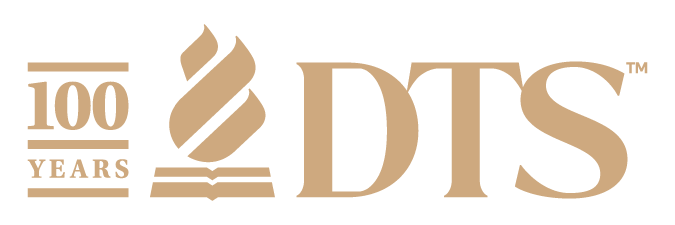For those passionate about sharing their faith and defending truth in a winsome and gracious manner.
Degree Overview
| Total Hours | 69 credit hours |
| Degree Time Limit | 7 years from first DTS class |
| Real-time courses | 4 courses required (Fully Online degree) |
| Satisfactory Academic Progress (SAP) | 10 hours per academic year |
The following are degree worksheets specific to students who entered the MAAE or reclassified to the MAAE in the following academic years. If students have questions about their specific degree requirements or degree audit, students should contact their academic advisor.
Roundtable Event
In this video, Dr. Yoder shares about the purpose of the degree, course formats such as Live Stream (LS), how to select MAAE electives, and planning an internship.
Priorities
0-20 Credit Hours
- Refer to the degree plan for your entering catalog as an overall guide
- Register for core courses: BE5101, ST5101, PM5101, and ST5605
- Register for Spiritual Formation (SF5100 – Dallas, Houston, DC; SF5110 – Online/Extension locations).
- SF5110 Mentored Spiritual Formation requires an application process and will take some time to complete.
- For questions about Spiritual Formation, please email: sf@dts.edu
- Familiarize yourself with the Academic Success Resource Center for various tools and links to assist with your courses.
- Meet with an academic advisor to discuss:
- What led you to DTS
- What elective courses might be helpful to take
- When, where, and what courses to take in Real-time in the coming semesters. (See the Real-Time Courses chart for more information.)
21-45 Credit Hours
How do I select MAAE electives?
Students may select from the pre-approved electives listed on the MAAE Degree Worksheet. A few questions and options as you consider possible electives:
- What areas of knowledge do you wish to acquire?
- What ministry skills do you need to develop or sharpen for the ministry context you intend to serve?
- The DTS course schedule page will provide you with a list of courses available.
- If you click “info” next to a course, you can see the course description and option to download the syllabus to understand what the course involves.
- Academic advisors and Theological Studies faculty are available to help you identify possible electives specifically geared to equip you in your present and future ministry.
What should I do and know for my internship (INT5170)?
Students should anticipate spending 7-10 hours per week during the internship. The internship should be in the ministry setting and incorporate activities the student anticipates doing after graduation. The internship provides an opportunity to integrate classroom learning, sharpen ministry skills, and clarify the student’s future ministry direction.
The internship requires an application in order to be registered and will take time to complete. Students are encouraged to begin this internship application before registration opens for the semester in which they would like start.
Internship Prerequisites:
- 34 hours of completed credit hours
- 2 semesters completed
- Courses:
- Progress toward SF5100/5110
- PM5101
- ST5605
Internship Information:
46-69 Credit Hours
What is required for Graduation?
- Students must submit the Admission to Candidacy Application (including all references) by the deadline listed for each semester on the Graduation Information page.
- Confirm the Graduation Date listed in the system corresponds to your plan with your Academic Advisor and/or Registrar’s Office. (Update graduation date here)
- Review/Confirm upcoming semester plans with an academic advisor to ensure all degree requirements are met.
- Students should indicate their plans to participate in spring Commencement using the Commencement Ceremony Participation application during the available dates and after being approved for Candidacy.
Further Training After Graduating
Master’s level students keep their current Logos Bible Software package. Future Logos updates or upgrades are the responsibility of each person and not done through DTS.
DTS graduates have three options for further training:
- Self-paced learning through Online Videos – All online courses and lectures are available for graduates to access through the Alumni portal. No application is required.
- Alumni nondegree – Graduates may take additional DTS courses as a nondegree student, either for audit or credit at a reduced rate. If students take courses for Alumni nondegree credit and want to use the course(s) toward another Master’s degree, then the student will need to pay the difference of tuition between the Alumni rate and current tuition rate.
- Pursue an additional DTS degree – Graduates may return to DTS to pursue a second Master’s degree. Graduates must reapply through Admissions and previous DTS credits are reevaluated and remaining requirements are evaluated upon readmission.




